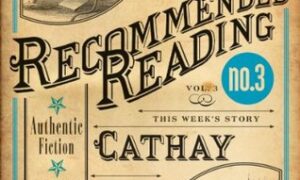 The Story of Land and Sea by Katy Simpson Smith
The Story of Land and Sea by Katy Simpson Smith
My rating: 3/5 cats



Regret only exists once the opportunity for change is gone.
this novel set in north carolina during the years 1771-1794, and is split into three separate narratives. it is a very quiet story, with some lovely writing in it, but i’m having difficulty trying to understand its “why.” i see where there are references and flare-ups between the stories, but i’m struggling to find its cohesive purpose. all i really have is that it is a very subdued story about faith and duty and sacrifice and family, specifically parenthood. and about the small disappointments parents feel when their children grow into people different than they anticipated. and about mind-boggling spur-of-the-moment decisions based on impulsive emotion rather than long-term practicality and how some things only make sense in novels and that’s where i start getting frustrated.
again, lovely writing, when describing the difference between a love whose foundation is faith in a careless and cruel god whose motives are obscure, and one more grounded in the corporeal:
He’d left the letter next to Helen’s miniature in the parlor, where Asa would notice it. The older man always sought out the little painting on his visits, holding it when he could. He had a possessiveness in him that encompassed his house, his land, his women. And whatever didn’t belong to him belonged to God. Asa would be happy to have the girl in heaven, might consider it safer than Beaufort, but John has no such faith. He could not leave his daughter’s body with a man who would not mind it, whose vision of God implied the reclamation of his flock. John believes in flesh. His love survives no transubstantiation.
or the logic behind giving a ten-year-old girl her very own slave as a birthday present:
Helen is nothing like her mother, who was exactly the sort to be married well and loved calmly. Perhaps she would have taught her some of this passivity. But Helen’s only mothers have been substitutes: the teacher, the cook, the slave. If she can’t have a woman to hold her and love her, she should have a woman to order around. Moll, at least, will give her the pride and responsibility of stewardship. His daughter must be tamed enough to bring a husband and heir to the land, but otherwise her whims are of little concern to him.
or this passage that loses something when taken out of context, but it actually quite romantic:
She reaches for his hand. It’s warm and dry, and she remembers for the first time his fingers on her mouth. She cannot bear the thought of leaving this island, the kindling fort. There is nothing she is not afraid of.
“You wrote so little,” she says.
“You wrote of farming,” he says.
She will go with him anywhere.
but overall it’s the kind of writing that’s never really resonated with me, not without some incredible storytelling to go along with it; some overarching theme or message or takeaway. the only unifying theme i can see binding the stories is disappointment. in expectations thwarted by god or family. in how the way we see the future can be drastically altered by illness and death, love, or the plans of those we have tied our imagined future to.
i’m certain to be in the minority with my tepid reaction to this one. read will’s review for a more enthusiastic response and don’t listen to silly old karen.
read my book reviews on goodreads







